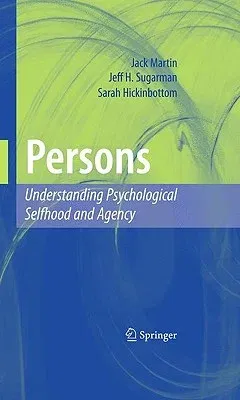At its core, psychology is about persons: their thinking, their
problems, the improvement of their lives. The understanding of persons
is crucial to the discipline. But according to this provocative new
book, between current essentialist theories that rely on biological
models, and constructionist approaches based on sociocultural
experience, the concept of the person has all but vanished from
psychology.
Persons: Understanding Psychological Selfhood and Agency recasts
theories of mind, behavior, and self, synthesizing a range of
psychologists and philosophers to restore the centrality of
personhood--especially the ability to make choices and decisions--to the
discipline. The authors' unique perspective de-emphasizes method and
formula in favor of moral agency and life experience, reveals frequently
overlooked contributions of psychology to the study of individuals and
groups, and traces traditions of selfhood and personhood theory,
including: The pre-psychological history of personhood, a developmental
theory of situated, agentive personhood, the political disposition of
self as a kind of understanding, Human agency as a condition of
personhood, Emergentist theories in psychology, the development of the
perspectival self.
Persons represents an intriguing new path in the study of the human
condition in our globalizing world. Researchers in developmental,
social, and clinical psychology as well as social science philosophers
will find in these pages profound implications not only for psychology
but also for education, politics, and ethics.

